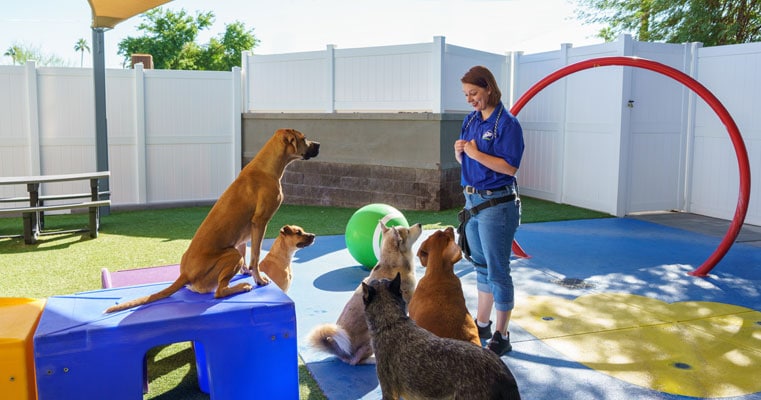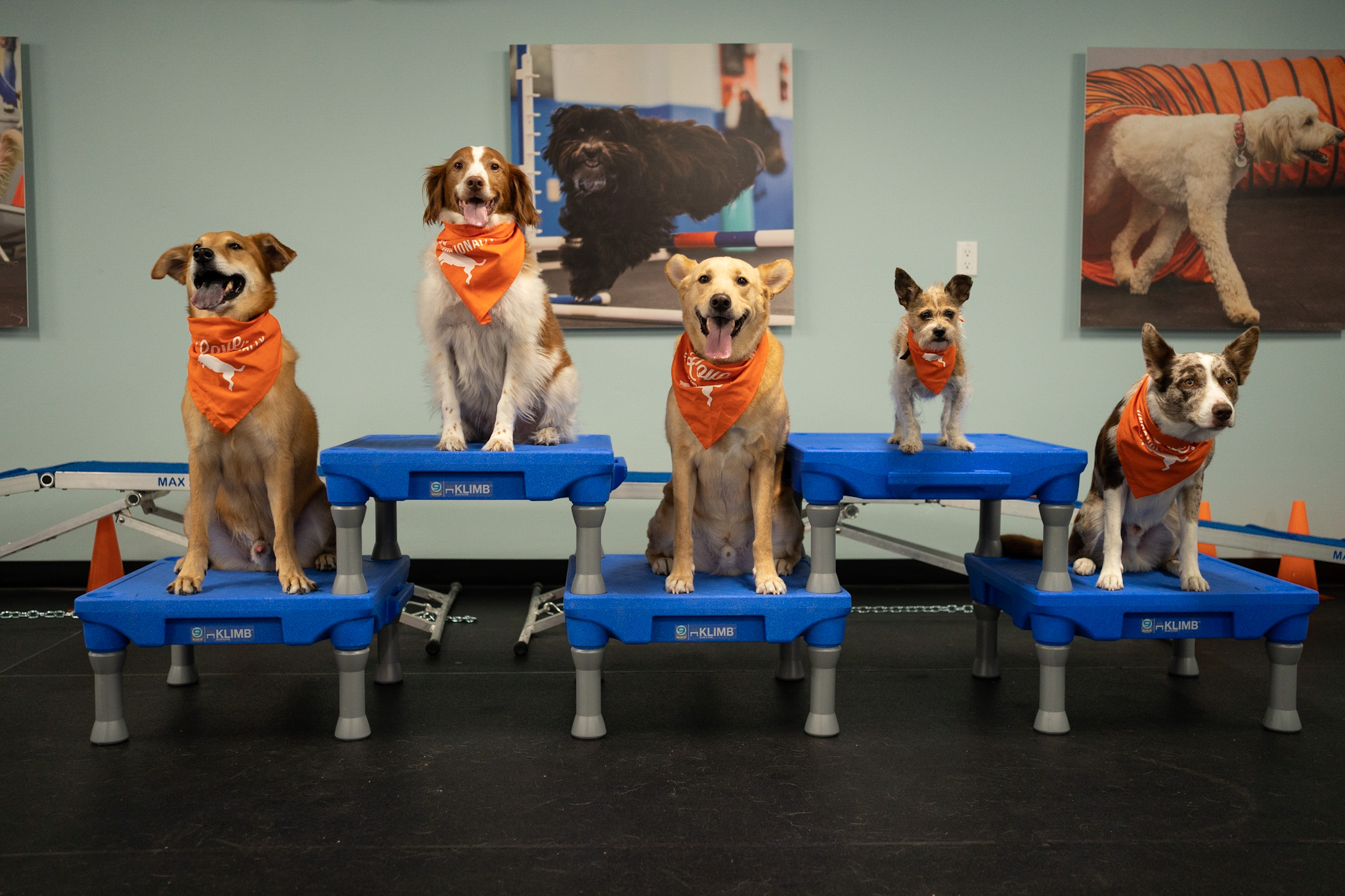Professional Insights on Dog Training Charlotte NC: Change Your Puppy Today
Professional Insights on Dog Training Charlotte NC: Change Your Puppy Today
Blog Article
Unlock Your Pet dog's Prospective: Proven Canine Training Methods for Success
Reliable pet dog training is a nuanced process that pivots on comprehending canine actions and utilizing scientifically backed approaches. By integrating positive support, developing clear commands, and prioritizing socialization, dog proprietors can cultivate an effective connection with their pets.
Recognizing Canine Actions
Comprehending dog actions is necessary for efficient training and fostering a positive connection in between pet dogs and their proprietors. An extensive understanding of canine body language, articulations, and social communications is important for acknowledging their requirements and feelings. Pet dogs communicate mainly with non-verbal signs; for example, a wagging tail may suggest exhilaration, while pinned ears can signal concern or entry.

Furthermore, environmental variables play a substantial function in shaping a dog's behavior. Adjustments in routine, new environments, or the visibility of unknown individuals can bring about anxiety or stress and anxiety in dogs. Identifying these triggers makes it possible for owners to mitigate adverse responses and establish appropriate training approaches.
Eventually, a deep understanding of dog actions lays the foundation for effective training techniques, improving both actions and the general bond in between the dog and its owner. Dog training. This expertise is essential for cultivating a well-adjusted, pleased canine friend
Positive Support Techniques
Reliable training relies greatly on positive reinforcement strategies, which have been revealed to yield considerable cause shaping wanted behaviors in pet dogs. This strategy includes compensating a dog for displaying specific habits, therefore increasing the probability that these actions will be duplicated. Incentives can take various types, including treats, appreciation, playthings, or playtime, depending upon what encourages the individual canine.

It is vital to gradually terminate benefits as the dog finds out the behavior, transitioning to recurring reinforcement. This strategy preserves the behavior with time while avoiding dependence on continuous incentives. By concentrating on favorable reinforcement, instructors can cultivate a relying on relationship with their pets, promoting a healthy and balanced and cooperative training atmosphere that boosts overall obedience and efficiency.
Developing Constant Commands
A basic aspect of effective pet training is the establishment of regular commands. Consistency in commands is important for reliable communication in between the instructor and the canine. When commands are uniform, pet dogs find out to associate particular words with wanted behaviors, which accelerates the training procedure and boosts understanding.
To develop consistent commands, it is necessary that all household members make use of the same terminology and gestures. If one person utilizes "sit" while one more states "rest down," it can develop complication for the dog. Select clear, distinct words for commands and guarantee everybody associated with the pet dog's training sticks to these selections.
In why not try here addition, rep is vital. Reinforce commands through frequent practice, ensuring that the canine receives sufficient chances to respond correctly. When a canine successfully follows a command, immediate positive support needs to adhere to. This can be in the kind of deals with, praise, or playtime, solidifying the link in between the command and the activity.
Lastly, hold your horses. Developing constant commands takes some time and effort. With devotion and clearness, you will aid your pet dog develop a solid understanding of expectations, ultimately leading to a well-behaved companion.
Socializing and Direct Exposure
Interacting socially a dog is essential for fostering a well-adjusted and certain companion. This procedure involves revealing your canine to train dog not to bite a variety of atmospheres, people, and various other animals to establish their social skills and flexibility. Early socializing, preferably between the ages of 3 to fourteen weeks, is important, as it prepares for a pet dog's future behavior.
During socializing, objective to give positive experiences in various settings, important link such as parks, active streets, and homes with various other pet dogs. Introduce your pet to various stimulations, consisting of sounds, views, and smells, making sure that each experience is gratifying. This direct exposure helps alleviate anxiety and stress and anxiety, leading the way for a more resistant dog.
Taking part in regulated group play sessions with other pet dogs can additionally enhance social skills, showing your pet suitable communications and borders. Always monitor your canine's convenience degree throughout these experiences, progressively enhancing exposure as their self-confidence expands. Bear in mind, the goal is to produce a well-shaped pet that flourishes in diverse circumstances, advertising an unified partnership with both people and various other pets. Prioritizing socialization will substantially add to your pet's total joy and actions throughout their life.
Overcoming Common Training Obstacles

Pet dogs might battle to concentrate in strange or hectic setups. Slowly desensitize your dog to distractions by starting training in a quiet atmosphere and slowly presenting even more stimulations as they come to be proficient.
Additionally, behavioral issues like leaping or excessive barking can become discouraging. Address these by instructing alternate actions, such as resting steadly when welcoming visitors. Uniformity and perseverance are critical; enhance desired behaviors regularly and avoid scolding, which can lead to complication.
Last but not least, identify that each pet is special, and training timelines might vary. Tailor your approach to your dog's specific demands, and seek professional guidance if necessary. With willpower and the ideal methods, getting rid of these challenges can lead to a trained, delighted canine buddy.
Conclusion
To conclude, opening a canine's potential demands a detailed method that includes an understanding of canine habits, the application of positive support methods, and the establishment of regular commands. Early socialization and direct exposure to diverse environments additionally enhance a pet's versatility and confidence. By attending to common training obstacles with tailored approaches and persistence, a harmonious and participating relationship between pet and handler can be cultivated, eventually causing a well-behaved friend efficient in prospering in various circumstances.
Effective pet dog training is a nuanced process that hinges on recognizing canine behavior and using scientifically backed methods.Recognizing canine behavior is necessary for effective training and promoting a favorable relationship between pet dogs and their proprietors.Effective training depends greatly on favorable reinforcement methods, which have actually been revealed to yield considerable outcomes in forming desired behaviors in pet dogs. When commands are consistent, dogs learn to connect certain words with wanted behaviors, which accelerates the training process and improves understanding.
In verdict, opening a dog's potential requires a detailed strategy that includes an understanding of canine behavior, the application of positive reinforcement techniques, and the establishment of constant commands.
Report this page